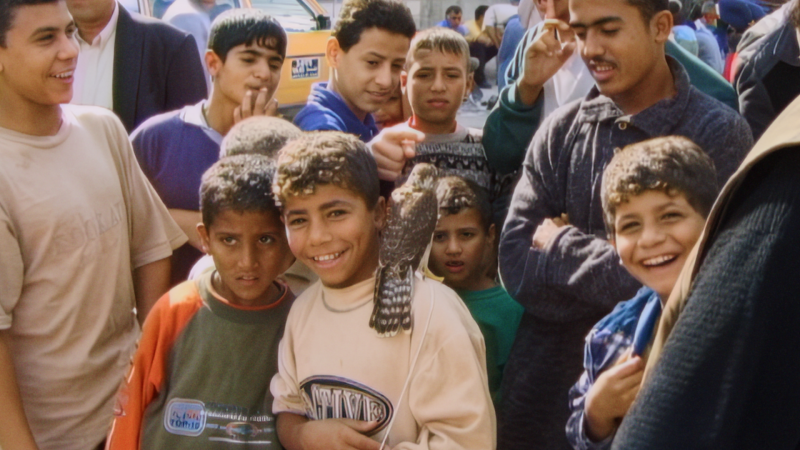Sky over Palestine at WATCH DOCS 2025 | WATCH DOCS
Jump to contentSky over Palestine at WATCH DOCS 2025
Documenting life under occupation takes on not only an artistic dimension, but also a historical one – Israel's two-year military campaign in Gaza is the only genocide in human history to have been so thoroughly documented.
But Palestinian films are not only a testimony to war crimes - above all, they are an attempt to reclaim the narrative and the right to their own history. That is why, during this year's edition of WATCH DOCS, we are giving a platform to those who, while living in conditions of humanitarian disaster, risk their lives documenting the reality of the occupied Gaza Strip and the West Bank. Their voice may become one of the driving forces of the global memory of these events. That is why this year's Marek Nowicki Award, presented for outstanding achievements in the field of human rights, will be awarded to Palestinian documentary filmmakers. It is a symbol of recognition of their courage, integrity, and unwavering commitment to recording a reality that is often overlooked by the mainstream media.
The section Sky over Palestine, which reveals the complexity of everyday life in the shadow of violence, includes three films by Palestinian filmmakers and two foreign productions – 'The Encampments', documenting the wave of student demonstrations calling for a boycott of Israel that swept across the US and Europe in 2024, and the acclaimed 'The Settlers', in which Louis Theroux visits the West Bank to learn about the growing community of Israeli settlers.
'With Hasan in Gaza' by Kamal Aljafari, the only documentary film in this year's international competition at the Locarno Festival, is a personal journey through the Gaza Strip, edited from footage shot in 2001. The director, searching for a fellow prisoner, traveled with a guide through places that now exist only in memory. An intimate portrait of local reality is intertwined here with reflections on memory and the erasure of history.
Similarly to Aljafari's film, in 'Three Promises', the story unfolding on screen was filmed in the early 2000s, during the second intifada. As the Israeli army begins its retaliation in the West Bank, Suha films the daily life of her family, who spend their nights hiding from bombs in the basement. Her children, frightened and confused, often ask their mother to turn off the camera, but she is adamant. She wants to capture this experience and the whole range of emotions that accompany it. Her son returns to these recordings, creating a poignant image that completes the story begun by his mother, thus preventing both personal and collective forgetting.
'The Mission' takes us back to events from the last two years. Dr. Mohammed Tahir, a British doctor of Palestinian origin, travels to Gaza to help at a local hospital. The film, shot by two members of his medical team, shows the brutal reality of hospitals in the Gaza Strip, the struggle with collapsing infrastructure, consistently destroyed by the Israeli army, and the enormous emotional costs. This uncompromising documentary is a historical testimony to solidarity in the face of violence.
The section also includes two documentaries providing additional context for the genocide that has been going on for two years. In 'The Settlers', renowned British journalist Louis Theroux returns to the West Bank after 14 years to learn more about the growing community of Israeli settlers, including its “godmother,” Daniella Weiss. Once a marginal movement, it now has supporters at the highest levels of the Israeli government, even though its activities remain illegal under international law.
'The Encampments', on the other hand, documents the wave of pro-Palestinian demonstrations that swept American university campuses in 2024. It all begins at Columbia University in New York, known as the bastion of free speech, where protests against the Vietnam War took place in the 1960s. When students set up a solidarity encampment demanding that the university withdraw its investments in the arms industry, the Columbia authorities call in the police, and the sit-in strike is brutally suppressed, sparking a debate about the complicity of Western countries.
